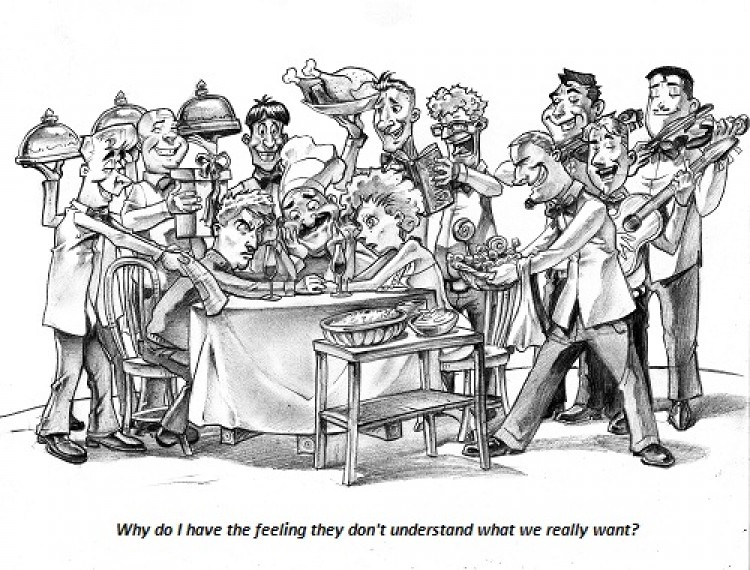In Part 1 of this article, we discussed how restaurants’ practice of constantly refilling iced tea glasses without first asking can actually leads to a diminished customer experience for some. We also hinted that we thought customers of oilfield suppliers could relate to this lesson. We want to use the second part of this article to explain how.
When an organization decides it wants to address customer satisfaction, the process it follows can have a big impact on whether its succeeds. When management does not think through and get involved in the process — opting instead for vague directives to “better serve our customers” or “create greater customer intimacy” — the results can prove ineffectual and even counterproductive.
It’s like restaurant managers who tell their employees to automatically keep customers’ iced tea glasses full at all times rather than to make sure customers enjoy their drinks — however full or empty. In other words, it misses the point.
Well-intentioned employees of oilfield suppliers can also miss the point when, in response to rash management edicts, they fan out across their unsuspecting customer base to fix any and all instances of real or imagined deficiencies.
The intention is to convey to customers that “we care.” But many times the message comes across as “It’s up to you, the customer, to tell us how to do our job… because we don’t know how.” These suppliers can come across as needy, out of answers and unable to meet customers’ needs without clients doing some serious hand holding. It’s not a good pose.
Moreover, while customers don’t usually verbalize it, they recognize that customer satisfaction leaders don’t behave this way. Rather, leaders innately understand that customers want to work with suppliers who consistently provide high-quality products and services. Winners do not constantly grovel for approval from their customers… or anyone else. They simply deliver.
The second fundamental problem with reflexively showering customers with gratuitous attention is that it confuses customer contact with customer service. More importantly, it confuses customer contact with customer satisfaction.

While suppliers might see never-ending customer sit-downs as creating goodwill, loyalty or intimacy, many clients see them as frustrating encroachments on their time. Some customers may view the hand holding as an additional and burdensome cost of doing business with that supplier.
So, what’s the better path?
A more effective approach recognizes that customers often make their complaints and dissatisfaction known without prodding from suppliers. Suppliers therefore need to establish cultures whereby customer complaints are embraced and addressed in responsive and professional manners. Recurring problems in particular should be given special attention and remedied as soon as feasibly possible.
In terms of obtaining constructive feedback, there’s always the opportunity to collecting structured customer satisfaction data via firms such as EnergyPoint and OFS Metrics.
Suppliers would also do well to seek out and incorporate perspectives of non-competitor oilfield suppliers who have demonstrated high levels of customer satisfaction over time. Not only does this approach offer the best opportunity for cross-pollination of best practices, it places the act of discovery into the supplier’s hands.







“Winners do not constantly grovel for approval from their customers or anyone else. They simply execute”. If you’re a service or product provider in need of a mission statement, this one is brilliant. Mr. Sheridan,
trademark it before it’s snatched up. Great observations and points to ponder. Great article, period.
Thanks Herb for your comments. Adopting a mindset around execution rather than promotion or marketing can be difficult for some companies. However, in the long run, it’s what customers base their judgements upon.